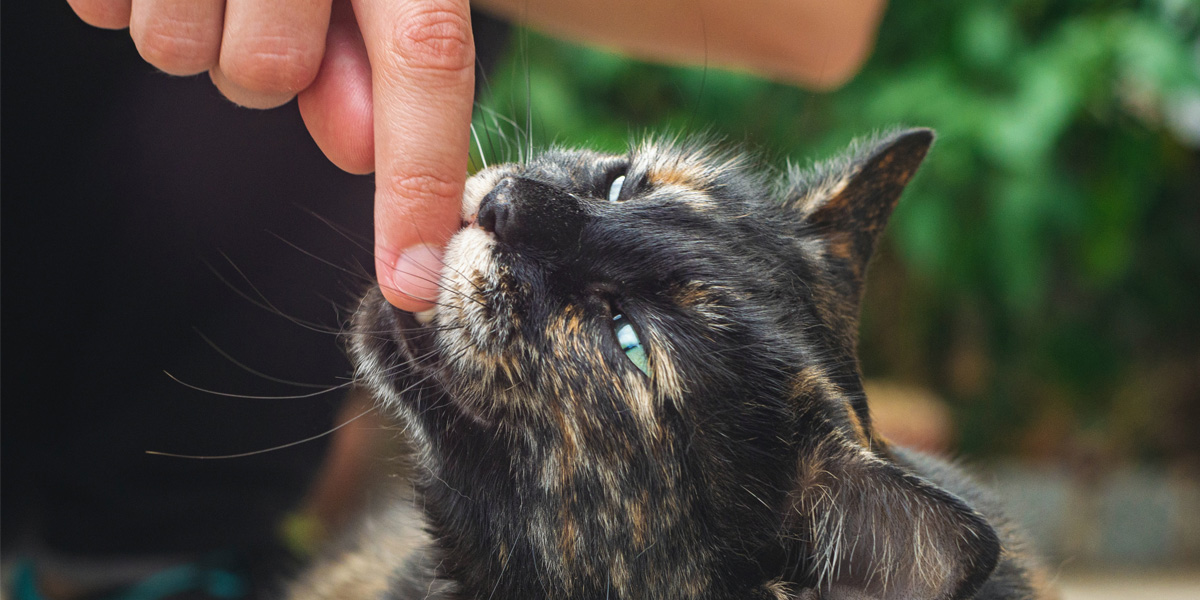
From gentle love bites to unprovoked sneak-attacks, even small cats can cause serious pain.
While it's not unusual for cats to nibble on their family members, biting is a fixable behavior issue, not something you have to learn to live with.
Why Does My Cat Bite Me?
Does your cat snuggle next to you, enjoying a pleasant petting session, only to tense up, turn around and lightly bite your hand?
These "love bites," simply mean that your cat no longer wants to be petted. Repetitive petting, petting against the growth of the fur, or petting vulnerable spots like the belly can all result in a warning bite.
Love bites are not the same as fear-based attacks of aggression.
Aggressive bites are usually preceded by escalating body language. Flattened ears, an arched back, cowered body language, hissing, swatting and growling are all signs that your cat is afraid, and may be about to bite.
How To Discourage Future Cat Bites
When it comes to "love bites," you'll need to learn to understand how and when your cat likes to be petted, and when to stop.
The best way to do this is to simply stop every few seconds and see how your cat reacts. If your cat wants you to continue petting them, they may lean into your hand or rub up against you.
Communication is key when it comes to preventing cat bites.
Can you tell when your cat is playful? Scared? Angry?
Learning your cat's body language and removing triggers can put an end to your cat's biting problem. Over time, your cat can learn safe, appropriate ways to play and communicate with you.
No matter what, avoid getting angry and using force to dissuade your cat from attacking you. Cats do not respond well to punishments. Spray bottles, yelling and hitting can break down your cat's trust in you, ruin your bond, and lead to more bites in the future.
Ask your veterinarian to refer you to a professional cat behaviorist. It's worthwhile to seek an expert who can give you the best chance of restoring a peaceful, trust-based bond with your cat.
Are Cat Bites Dangerous?
If your cat bites harder than the normal "love bite", their sharp fangs can break the skin and create deep puncture wounds.
Cats carry many types of bacteria in their mouths, like staphylococcus, streptococcus or pasteurella bacteria. Over 75% of cat bites introduce harmful bacteria into the victim's body.
This is a good reason to take every bite seriously.
Immediately after your cat bites you, rinse well with lukewarm water. There's no need to use soaps or disinfecting agents, as these tend to slow down the healing process. You can use an over-the-counter antibiotic cream, like Neosporin, to prevent infection. If needed, wrap the wound in a sterile bandage to stop any bleeding.
See a doctor within 8 hours, even if you do not have any symptoms of an infection. Redness or swelling at the bite site, or flu-like symptoms should be treated as a medical emergency.












































